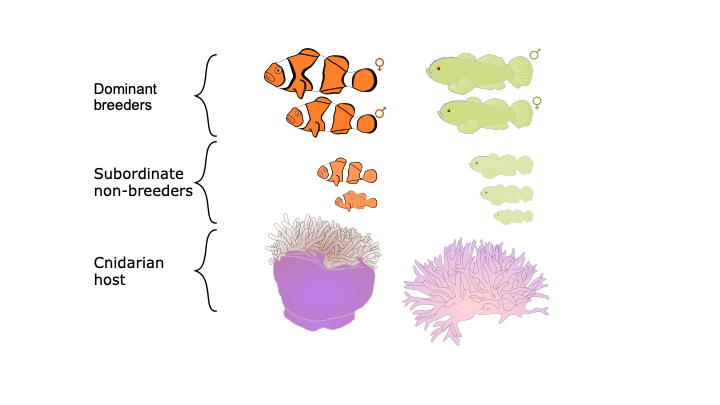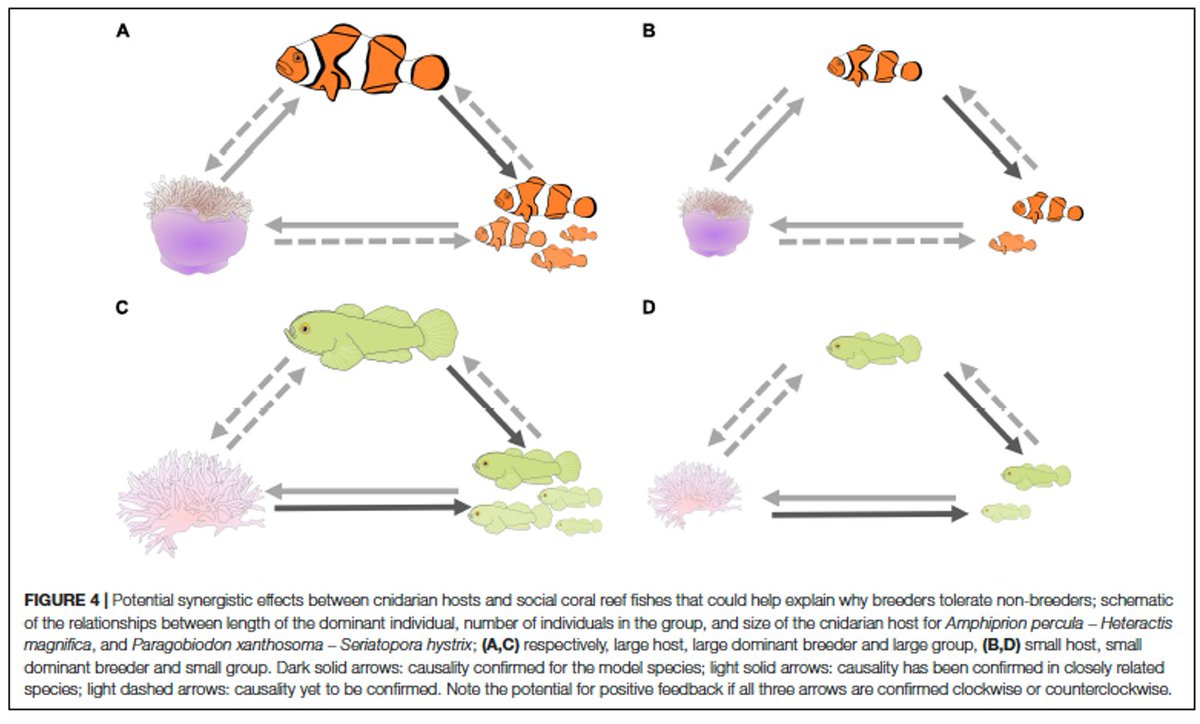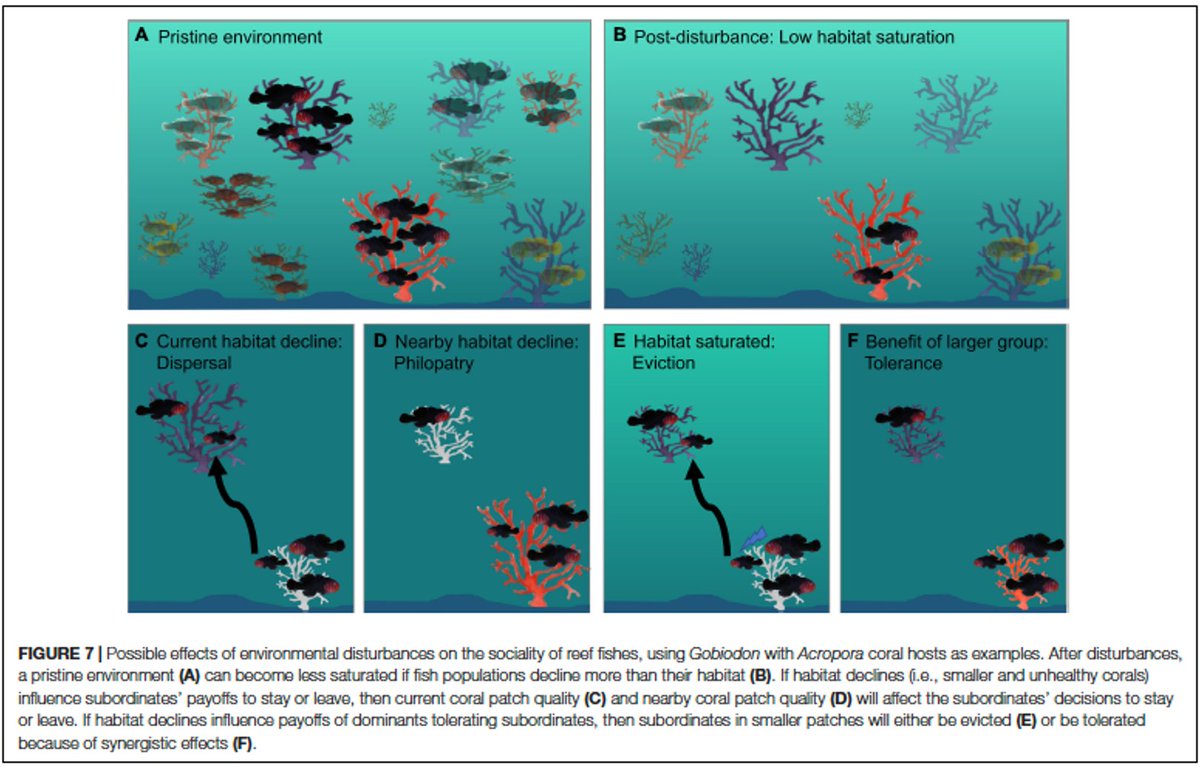We did the pandemic thing and wrote a review! Great collaboration with @MarianWong10 @BustonLab @GobyPrincess @BranconiRebecca and Siobhan Heatwole. Check out our synthesis and new ideas for Reef Fish Social Evolution.  https://abs.twimg.com/emoji/v2/... draggable="false" alt="🧵" title="Thread" aria-label="Emoji: Thread"> 1/n https://www.frontiersin.org/articles/10.3389/fmars.2021.665780/full">https://www.frontiersin.org/articles/...
https://abs.twimg.com/emoji/v2/... draggable="false" alt="🧵" title="Thread" aria-label="Emoji: Thread"> 1/n https://www.frontiersin.org/articles/10.3389/fmars.2021.665780/full">https://www.frontiersin.org/articles/...
The evolution of complex groups, where some individuals reproduce and some don’t, is an evolutionary puzzle. Why do non-breeders accept their situation? Why do breeders accept non-breeders to share their resources? 2/n
Marine fishes have a larval phase and no alloparental care, so the usual explanations might not work for them. 3/n
In the past 2 decades we have learned a lot by using model species: the emerald coral goby and the clown anemonefish. Especially work by @MarianWong10 and @BustonLab 4/n
..and the humbug damselfish, which has a more complex social organization. This part was lead by @BranconiRebecca 5/n
We now know that non-breeders stay because of social and ecological constraints and because they stand to inherit the territory, at least in some species. 6/n
We know less about why breeders tolerate non-breeders. There is potential for weak kin selection, and lots of open questions about synergistic effects and mate replacement to be explored. 7/n
Looking beyond the model species, comparative studies can give us insights into sociality, as was done recently for Gobiodon by Hing et al. https://www.sciencedirect.com/science/article/pii/S1055790319300442">https://www.sciencedirect.com/science/a... This part led by Siobhan Heatwole. 8/n
And the interplay of sociality and environmental change will become more and more important as ecosystems transform. This part led by @GobyPrincess 9/n

 Read on Twitter
Read on Twitter







